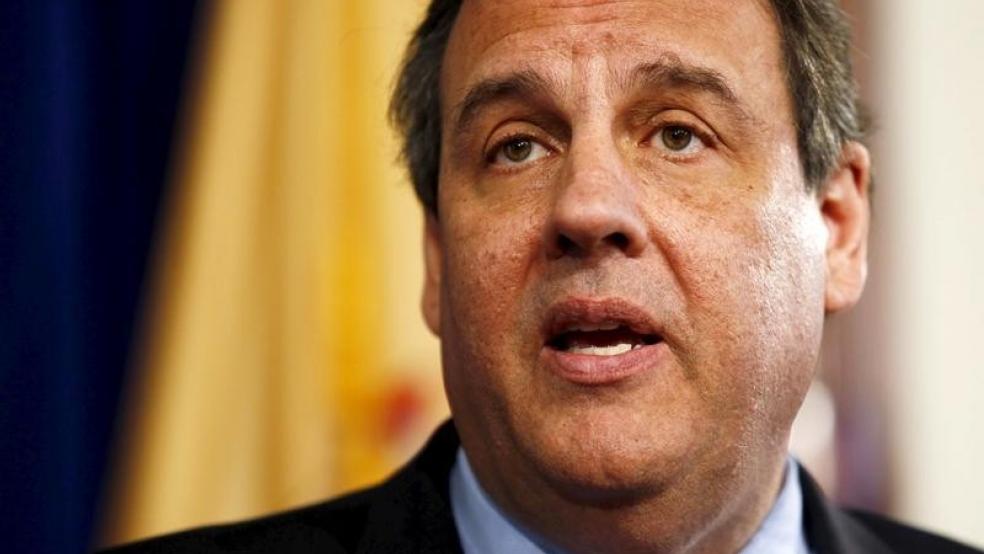New Jersey Gov. Chris Christie caused a stir back in April when he unveiled his plan for reducing the long-term debt through cuts and reforms of Social Security, Medicare and other fast growing entitlement programs.
He predicted that his proposals would reduce the growth of entitlement spending by $1 trillion over the next decade. The reaction was mixed, from high praise from budget watchdog groups to condemnation by seniors’ advocacy organizations. Yet few could dispute that the tough-talking governor had laid down a serious marker for future discussion if he managed to win the GOP presidential nomination.
Related: Christie Doubles Down On Vow to Overhaul Medicare and Social Security
“While other politicians are running away from the issue, Christie is running towards it, and not only starting a straightforward discussion about the need to reform entitlements, but also offering real specifics,” Maya MacGuineas, president of the Committee for a Responsible Federal Budget, said at the time.
MacGuineas and other deficit hawks are less sanguine today about Christie’s seriousness in containing the $18.3 trillion national debt. That’s because earlier this week he became the ninth GOP presidential candidate to sign the Americans for Tax Reform pledge to oppose any tax increase while in office.
Christie’s action was good politics if not necessarily responsible public policy. Lawmakers and politicians for years have been hounded by Grover Norquist, the president of Americans for Tax Reform, to agree to the tax policy straightjacket or face retribution at the polls.
"Governor Christie understands that government should be reformed so that it takes and spends less of the taxpayers' money,” Norquist said in a statement. “He will oppose tax increases that paper over and continue the failures of the past."
Related: The Trouble with Christie’s Tough-Guy Pitch
Now Christie is in league with eight of his rivals for the GOP presidential nomination, including Sens. Marco Rubio of Florida, Ted Cruz of Texas and Rand Paul of Kentucky, former senator Rick Santorum of Pennsylvania, former governors Rick Perry and Mike Huckabee, former business executive Carly Fiorina and former neuro-surgeon Ben Carson. Norquist expects more to sign on soon.
If Christie is serious about achieving long-term debt reductions, as he insists, some budget experts with years of experiencing promoting comprehensive entitlement reform say he just tossed away an important bargaining chip.
“For Chris Christie, who has shown an incredible amount of leadership on the issue of entitlement reform, to sign a no-new-taxes pledge is a huge step in the wrong direction,” MacGuineas said on Thursday. “Candidates should be focusing on ways to address our fiscal challenges, not taking options off the table.”
Robert L. Bixby, executive director of the Concord Coalition, another fiscal watchdog group that is closely monitoring the presidential campaign, has also voiced concern. In the world of Washington budget deliberations, Bixby said, “taking options off the table that might be necessary to strike a political deal is not wise.”
Related: Can Christie Talk His Way Back to the Top of the GOP Pack?
Christie has boasted of being the only presidential candidate with the nerve to take on entitlement reform – popularly known as touching “the third rail of politics.”
“I'm the only guy on this stage who's put out a detailed, 12 point plan on entitlement reform and here's why -- because 71 percent of federal spending right now is on entitlements, and debt service -- 71 percent,” he said during last Thursday night’s debate in Cleveland. “And we have spent the last hour and five minutes talking about the other 29 percent, and no time on the 71 percent, and that makes no sense.
“If we don't deal with this problem, it will bankrupt our country, or lead to massive tax increases, neither one that we want in this country,” he said.
In some ways, Christie’s approach to the debt problem borrows a page from the fiscal 2016 budget plan approved earlier this year by the Republican Congress. That plan, devised by House Budget Committee chair Tom Price of Georgia and Senate Budget Chair Mike Enzi of Wyoming, calls for eliminating the annual deficit within a decade through a series of tough cuts in entitlements and other social programs but without raising a dime of new revenue.
Republican leaders hailed the plan as a major breakthrough that would gradually lead to a dramatic transformation in federal spending policy, although in fact there is little chance it will ever see fruition because of vigorous opposition from the Democrats who were largely excluded from the key negotiations.
Related: Executive Experience a Double-Edged Sword for Some GOP Candidates
The last serious effort at a major budget, entitlement and tax reform agreement came during secret negotiations between President Obama and House Speaker John Boehner (R-OH) in 2011. Those talks collapsed after Obama tried to extract more in tax increases from Republicans than they were willing to give.
Former Sen. Alan Simpson (R-WY) and former Clinton White House chief of staff Erskine Bowles – who jointly headed a presidential commission – tried to rekindle interest in their approach in 2013 with a modified plan to save $2.7 trillion in the long run. But their efforts were all to no avail.
Now Christie is promoting a “grand bargain” of sorts that is far less realistic that the Simpson-Bowles approach to debt reduction because it would offer Democrats nothing in the way of additional revenue to soften the blow to the government’s premier health care and retirement programs.
John Zogby, a veteran pollster and political analyst, said yesterday, “Any polling I have done or seen shows that voters get that deficit reduction is not so simple and formulaic.”
“It requires both cuts and revenue enhancement,” he added. “This short term positioning to appeal to the GOP vocal base is generally a long term problem because it shows a candidate to be beholden to a party's narrow interests and to be disingenuous.”





